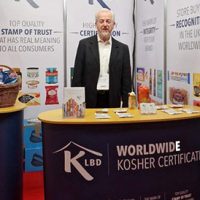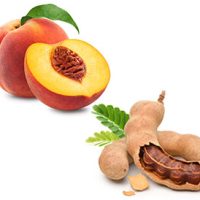The Natural & Organics Show (NOPEX) will be taking centre stage once more at…

A Guide to Food Certifications
Taking a trip to the supermarket is an exciting and educating experience.
Faced with hundreds of products to choose from, the consumer must look at greater factors than the standard eye-catching packaging when making their choice on what to buy. So, what can the manufacturer do to ensure that their products stand out?
Having your products certified can help with this.
In the UK alone, there are several varied routes of certification: finding which is most appropriate for your consumers can prove incredibly effective.
Food Certifications
Red Tractor Certified
Red Tractor is an independent UK based food assurance scheme which aims to protect the environment, animal welfare and ensure high standards of food safety.
The scheme traces food manufacture from the growth of raw materials through to the packaging process and is governed by the Assured Food Standards (AFS).
The benefits of Red Tractor certification lie in its notoriety: due to the certification being well-known, consumers are more likely to opt for products which are Red Tractor certified over its competitors, as they understand it will be hygienic and will have had minimal effects on environmental factors.
Vegetarian Society Approved
Currently, 5.7 percent of the British population are vegetarian.
A vegetarian is an individual who adheres to a specific diet which consists of grains, pulses, nuts, seeds, vegetables, fruits, and other non-animal based products.
The diet strictly excludes all foods which are meat based.
The Vegetarian Society Approved certification indicates whether your product is acceptable to those following the vegetarian diet and ensures that consumers would opt for your product if it held the certification over its competitors.
Vegan Certification
Hailed as the fastest growing lifestyle movement in the UK, Veganism is similar to the vegetarian diet as it also excludes any meat-based products.
However, Veganism also prohibits the digestion of any products created from animals, such as dairy, eggs and honey.
This could be due to several factors, from health and environmental benefits to the more ethical treatments of animals.
With the population of individuals adopting the Vegan diet on the rise, manufacturers could take the opportunity now to become Vegan certified and be ahead of their competitors in a growing market.
Gluten Free
Focused primarily on the individual’s health, a gluten-free diet is adopted by those with a particular resistance to gluten or those who suffer from coeliac disease.
Some foods are naturally free from gluten. These include:
- Meat
- Fish
- Fruit
- Vegetables
- Rice
- Potatoes
- Lentils
However, other products will require gluten-free certification to be certified as safe.
As this has health ramifications, it is essential from a manufacturers point of view to clearly stipulate whether their products are suitable or not.
In addition, as the gluten-free market is growing quickly, becoming a certified gluten-free manufacturer can propel your product into prominence and raise brand awareness simultaneously.
Kosher Certified
Kosher certification is a standalone international quality standard which is increasingly prevalent in the food ingredients and retail sector.
Through gaining a Kosher certification, you are ensuring that your consumers are aware that the product they are purchasing is kosher. This includes the raw materials used to manufacture the end product, as well as the manufacturing process itself.
Kosher certification provides certain assurances to consumers about the origins of their food, and according to a Mintel survey in 2008, consumers prefer Kosher foods for reasons of food quality (62%) and general healthiness (51%).
For more information or to make an enquiry, contact us today – here at KLBD, our expert advisers can assist you in starting the process of becoming Kosher certified.





